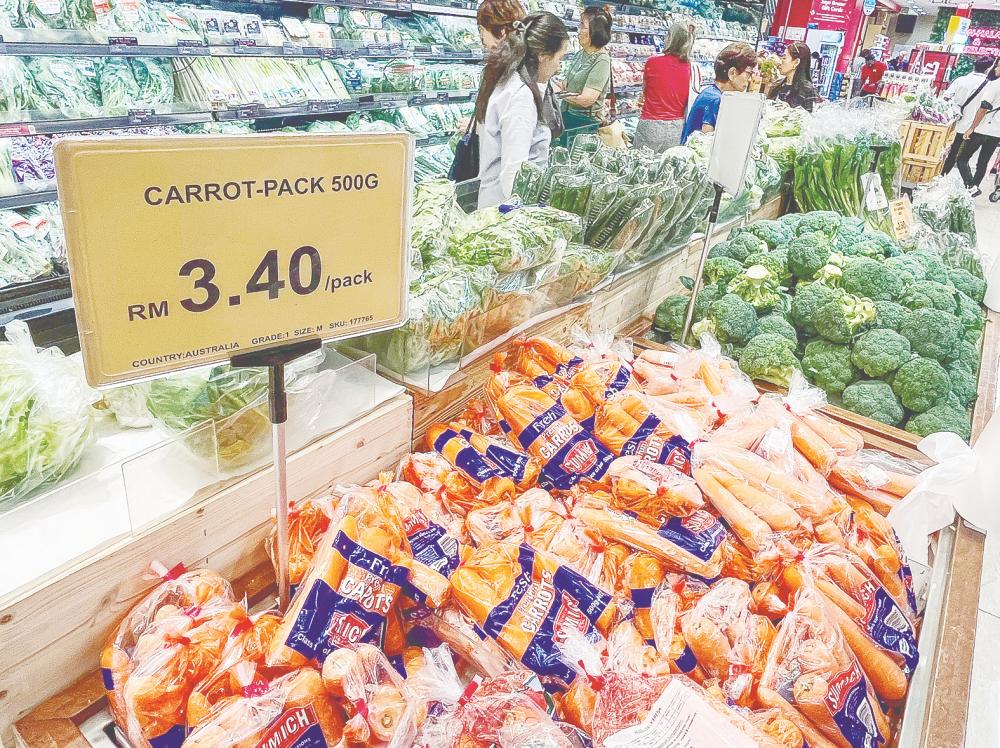PETALING JAYA: As Malaysia grapples with the aftermath of floods that have destroyed over 100ha of farmland in December, experts are calling for measures to address growing food insecurity.
Federation of Vegetable Farmers Association president Lim Ser Kwee said vegetable farms in Johor, Malacca, Perak, Kelantan and Terengganu were damaged by the floods, resulting in a shortage of supply and increased prices of between 50% and 80%.
He said the crops affected included sawi, spinach, cucumber, tomatoes and lady’s fingers.
Universiti Utara Malaysia School of International Studies Assoc Prof Dr Bakri Mat said the floods are a reminder of how climate-related disasters could disrupt food security.
“In the short term, the destruction of farmland has led to a sharp drop in domestic agricultural supply, particularly vegetables.
“Such supply chain disruptions create immediate food insecurity, particularly for low-income communities that struggle to afford inflated prices.”
He said such a situation is concerning when viewed from a national security perspective as Malaysia imports a significant proportion of its vegetables, and over-reliance on global markets amplifies vulnerability to price volatility and supply shocks.
“The challenge is compounded by the risk of losing skilled farmers, who might abandon agriculture due to recurring losses.
“Malaysia must focus on building resilience by diversifying food production, investing in research to develop climate-adaptive crops and strengthening policies that protect smallholder farmers.”
Bakri said climate-related incidents highlight the need for proactive disaster preparedness in Malaysia’s agricultural sector.
He urged the government to focus on improving early warning systems, localised disaster response and infrastructure development.
“Malaysia needs to enhance its meteorological capabilities and develop digital platforms that provide real-time alerts to farmers through apps or SMS. This could raise awareness among farmers and help them prepare mentally and physically to reduce the overall impact of disasters.”
He said financial relief is a critical priority and implementing accessible climate insurance schemes, such as index-based insurance, could provide farmers with immediate assistance.
“Providing micro-loans designed for disaster-hit farmers could empower them to rebuild and reinvest in their livelihoods, helping them to recover from losses and adapt to climatic conditions.”
He said the rising frequency of extreme weather calls for a complete overhaul in agricultural practice, including better water management and agro-ecological zoning to ensure the crops that are planted suit each region’s climate and soil.
Taylor’s University Faculty of Social Sciences and Leisure Management senior lecturer Dr Salini Devi Rajendran said food security challenges are intertwined with climate change and systemic inefficiencies.
“The urgency of addressing food security is highlighted by Malaysia’s 2.6% year-on-year increase in food prices as of November 2024, the highest increase since December 2023.”
She said long-term solutions to prepare agricultural supplies remain inadequate.
She also said farmers remain vulnerable to extreme weather events, leading to frequent yield losses and supply disruptions.
“Agriculture remains the backbone of the economy and a critical element of our national identity.
“The unpredictable nature of climate factors are threatening food production and distribution, underscoring the need for resilient and sustainable food systems.”









